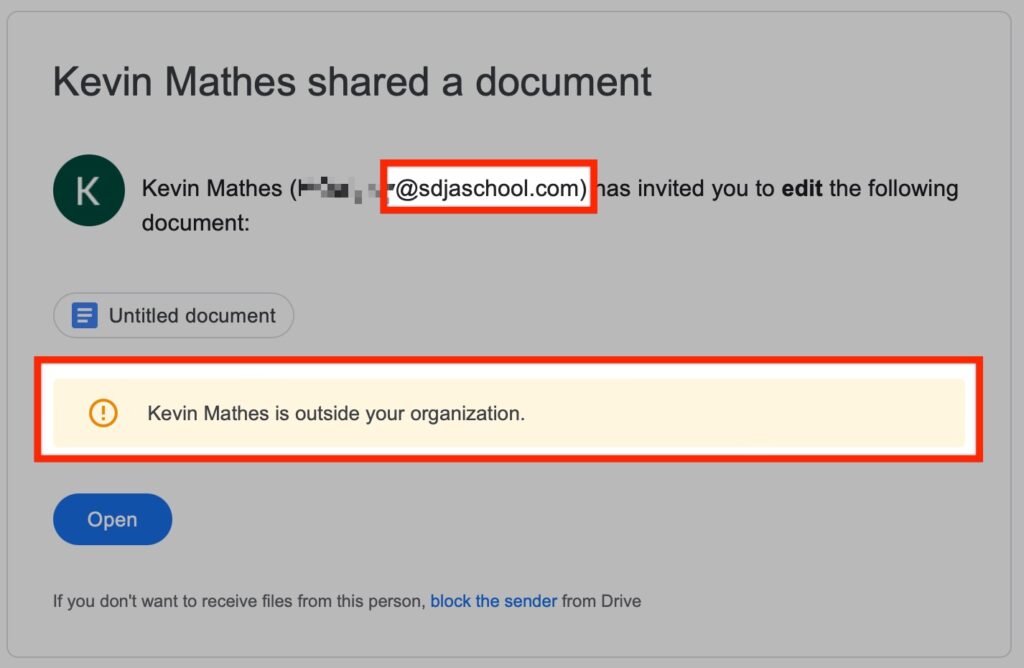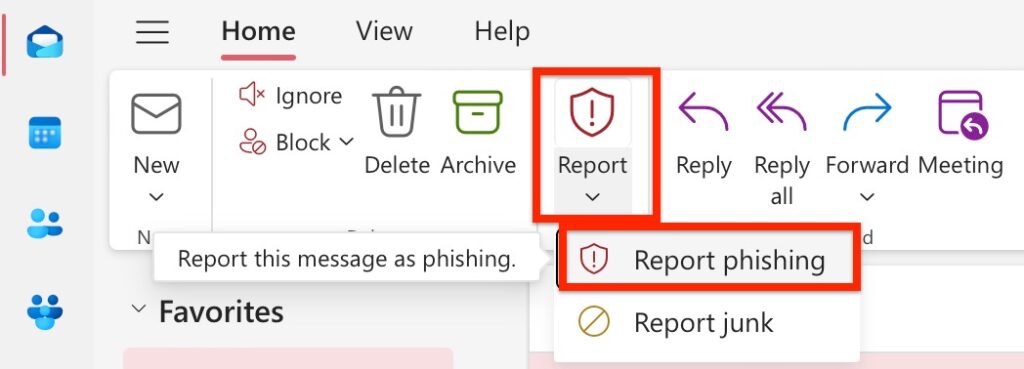Search for answers or browse our knowledge base.
Unfortunately, we live in a fallen world in which people have nothing better to do than phishing for someone else’s information. Therefore, we must be diligent when emails come in that seem out of the ordinary. Below are some things to look for and steps you can take when you receive emails like this.
What to look for ...
Emails from fake Superintendent and fake Principal accounts are common. Take a couple extra seconds to take a closer look at those emails to see if they look legit based on the information below.
STEP 1 Check for the *EXTERNAL* tag
STEP 2 Does the complete sender email line make sense?
STEP 3 What does a Microsoft shared document look like?
When a colleague shares a document from their Microsoft OneDrive with you, the document comes straight from the user that is sharing the document to you. It will not come from a generic email address. You will also see in the email the 'NRCA Tech' logo along with one or more Microsoft logos as shown below.
STEP 4 Take an additional look before you click
STEP 5 Are you being asked to purchase something?
You will never be asked in a random email from any member of administration to purchase gift cards or money orders to be reimbursed later. This is a sure sign of a phishing email.
What to do ...
STEP 1 Forward the email to Mrs. Ciancanelli
In an effort to not have multiple people working through the same phishing email, please forward the email to Mrs. Ciancanelli. Even if you are not sure, you can forward the email and she will take a closer look for you and confirm that it is indeed phishing.
After confirmation the email address in question will be blocked from future messages to NRCA.
STEP 2 Report email as phishing in Outlook
In the ribbon of your Outlook web client you will see a choice of 'Report' (it may not be in the exact location or with the same size icon as shown below, that is customized by your settings). Once you have clicked 'Report', then choose 'Report phishing'.
Remember phishing and junk are not the same. Junk is unsolicited email from companies. Phishing is someone deliberately impersonating another person to get you to respond or click a link. These links can steal passwords, steal personal information, install viruses, steal your address book or a host of other items.
STEP 3 They got me! I clicked the link! Now What?
If you ever click on a link to a phishing email, please let the technology department know. Ms. Cox will then get with you to get your password reset for safety purposes.
If you have replied to an email that is suspicious, it may not be necessary to reset your password, the technology department will help you determine that.
If you ever feel that your account has been compromised in any way, please reach out to the technology department by putting in a ticket at nrca.incidentiq.com and we will work with you to get your password reset.





